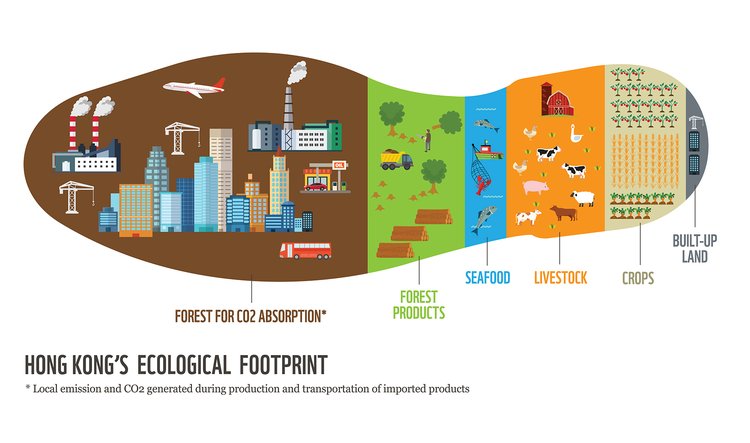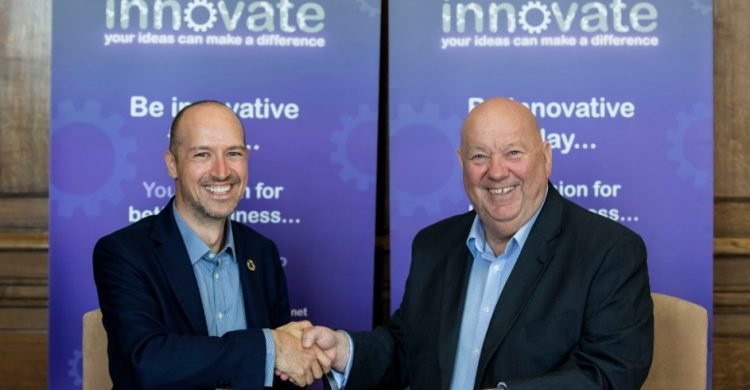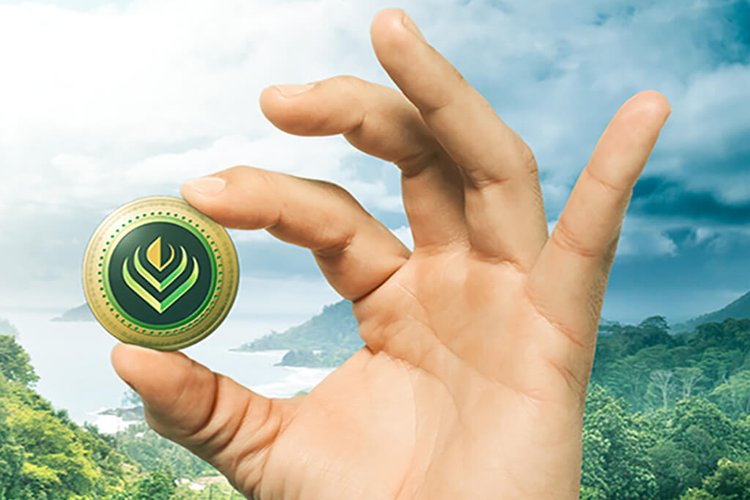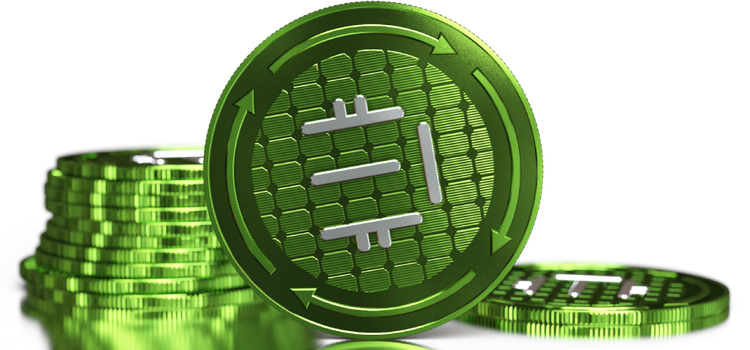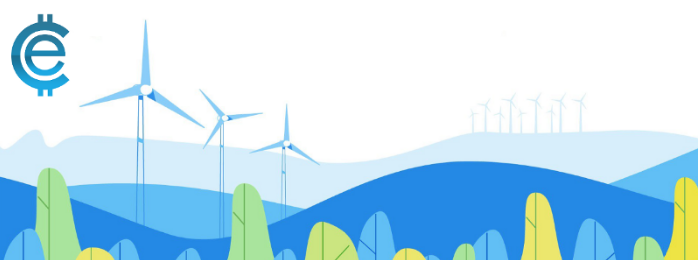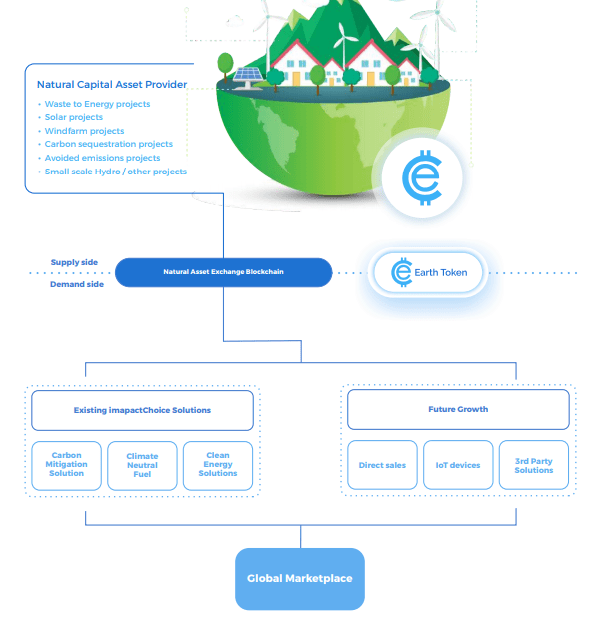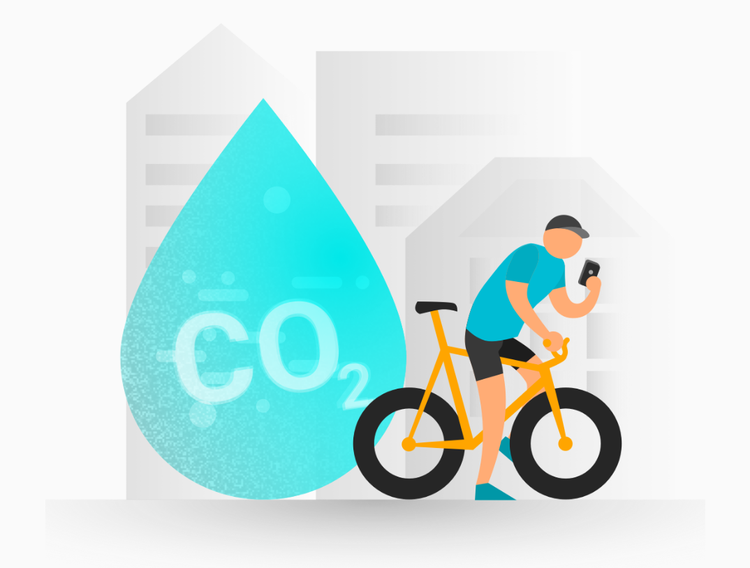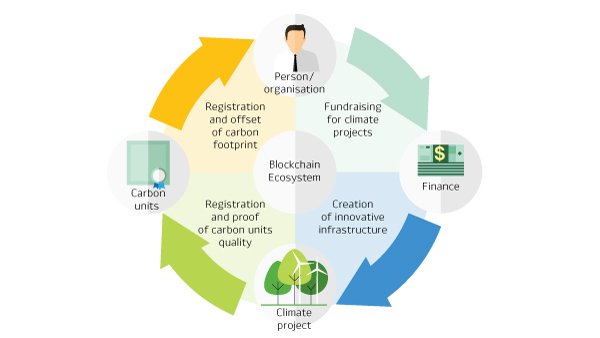Technologies bring many useful things and tools to our lives. However, they also have a downside. Growing consumption leads to chaos in the ecosystem of our planet. Every year, more than 1.5 billion tons of waste is produced and analysts predict that this figure will double by 2030. Global climate change now worries almost every person, not just environmental scientists, since it is simply impossible not to notice the annually growing change in the weather. A growing number of natural disasters, rapidly increasing volumes of household waste, the use of materials that it takes hundreds if not thousands of years to break down in nature - and that's just a small part of the problems that confront us.
According to the World Wildlife Fund (WWF), the inhabitants of Earth consume more resources than the planet can replenish in one calendar year. People need a planet 1.7 times bigger than ours to provide the necessary resources. Therefore, environmentalists determine the day in which the demand for bioresources exceeds supply, and have called it the Ecological Debt Day. Each year the date shifts closer to the beginning of the year, as the resources of the planet run out faster and faster. In 1970, it fell on December 23, in 2000 - on October 4, in 2015 - on August 13, and in 2017 the date fell on August 2. This year, the Day of Environmental Debt was on August 1.
A lot of environmental activists are sounding the alarm and are urging to think about reasonable consumption. For example, do not use plastic straws, which according to statistics serve their purpose only a couple of minutes, whereas their decomposition takes hundreds of years causing irreparable damage to nature. But usually, these are private initiatives. It's time to think about how to turn the Earth into an ideal living environment. And in this blockchain-based projects can play an important role. After all, the distributed ledger technology (DLT) is very multidimensional, and its implementation in the most diverse spheres of human activity is already showing good results.
Biologists believe that the main threats to the environment are the lack of control over the consumption of resources, synchronization in the work of customers and suppliers, and the lack of an honest and genuine accounting system. The introduction of a blockchain to control the extraction, processing and supply of various raw materials could help reduce the negative impact on the environment. This system provides transparency of transactions, security, and protection from double write-offs.
It is impossible to forge a record in a distributed ledger. This approach applied to the control of resources will help preserve the ecology. One of the reasons for today's environmental crisis is that there are a lot of people on the market who do business without sufficient accounting. Resources go through a large number of intermediaries, making it easier to do unfair business. For example, commit waste disposal fraud. If each stage, each transaction was controlled by DLT, then there would not be situations when one of the parties is ignorant about the actions of others in the chain. Here, each of the participants could control both the supply, extraction and disposal of waste. But the main thing is that everything would be taken into account. The precise amount of material needed would be requested and a crisis of high mining could be avoided. The introduction of a common, distributed platform would solve several problems at once.
Therefore, many environmental activists are already thinking about the launch of blockchain projects. For example, they propose to create a single register through which it would be possible to fix the "circulation" of packaging. The manufacturer sells the goods to the buyer in a package with special labels, the consumer returns the package to the seller, who sends it to recycling. Each action is fixed in the blockchain, and members of the process receive bonuses. Many environmental activists want such initiatives to be implemented at state level. But so far, most programs are still at the idea stage. At the same time, numerous blockchain projects in the sphere of ecology have already begun their work. Here are a few of them:
Liverpool and the Poseidon Foundation
Liverpool will fight global warming with the help of a blockchain. The city authorities signed a partnership agreement with the Poseidon Foundation startup, which develops eco-solutions based on DLT. Within the framework of the partnership, Poseidon Foundation will develop solutions using Stellar's blockchain, allowing to make carbon credits affordable for small corporations and city residents.
In particular, one of the future developments of the startup is blockchain-application, which shows how many carbon substances the resident threw into the atmosphere when buying, for example, a t-shirt. If the buyer is concerned about the environment, he can include in the application a function that automatically allows you to write off funds from his account in the framework of a carbon loan. Also, Poseidon Foundation plans to release Ocean tokens, through which it would be possible to finance companies involved in planting trees. By 2030, with the help of new blockchain solutions, the government of Liverpool intends to reduce carbon emissions in the city by 40%.
IBM and Veridium Labs
The technological giant IBM announced a partnership with a company specializing in environmental solutions, the Vertex Labs startup. The two firms are planning to infer carbon emission quotas used by companies whose activities involve significant risks of environmental pollution with the help of Stellar's blockchain. Revenues from the sale of Verde tokens will be used to restore 250 square miles of forestland on the island of Borneo.
Veridium to Use IBM Blockchain Technology to Create Social and Environmental Impact Tokens. IBM’s engagement with Veridium will mark the first public IBM involvement in a token issuance on public network.#Consensus2018 #IBM #BlockchainWeekNYC https://t.co/LMjittKRcI
— Veridium Labs (@VeridiumLabs) May 15, 2018
According to the participants in the deal, carbon trading has been practiced for quite some time, but there were still some difficulties in keeping records of such quotas. According to IBM and Veridium Labs, the use of the public network Stellar will eliminate many difficulties and make the process of trading quotas more transparent.
EDRCoin
The EDRCoin is a cryptocurrency, the concept of which is based on a sustainable policy in the field of energy efficiency and the environmental friendliness of processes. The distinctive feature of EDRC is what the creators call environmentally friendly mining, achieved through the use of solar panels. Developers also contribute to the sphere of sustainable development and conscious consumption of world resources. So, according to the founders of EDRC, part of the income goes to the restoration of forests in Asia and the development of modern solar power plants around the world. The cryptocurrency is posed as a unique product, as the EDRCoin mining process does not leave a carbon footprint.
Earth Token
Today, natural resources are actively used by the population of the whole world, they lie in the process of vital activity of all life on earth. Earth Token believes that the situation can be changed. For example, in order to stock up wood, the production enterprises carry out deforestation. Instead, Earth Token invite them to issue specially created tokens, for the preservation and disembarkation of the forest. Thus, the participants of the experiment will have the opportunity to compensate their influence on the outside world through the process of exchange between sellers and consumers.
The distribution of energy produced by natural resources is also included in the list of the main issues that Earth Token will deal with since the most efficient and environmentally friendly energy sources are currently not widely used. Among them: salt power stations, hydroelectric power stations, wind power stations. All this creates a set of tasks that need to be addressed within the framework of large companies and territories. These questions are addressed by the Earth Token team.
The decentralized platform Natural Asset Exchange with the Earth Token provides a unique opportunity to truly transform the Natural Capital Asset market by creating the Natural Asset Marketplace to participate in activities aimed at preserving the environment and providing tangible assets to all stakeholders. Earth Token is a platform designed to unite manufacturers of natural products with those who want to acquire them. The platform takes on a number of functions that will enable it to provide unique solutions in the field of environmental sustainability. This, in turn, will stimulate a demand for natural assets and will solve the problems of adaptation to climate change.
Carbon Coin
The essence of this project is to use a blockchain system to encourage farmers around the world, to form a caring attitude to the Earth’s resources. The population of the planet increases year by year, accordingly, the need for food is also increasing. Therefore the agricultural industry is expanding. But this sector has a very strong effect on the CO2 content of the atmosphere. For this to change a constant control over the volume of production of carbon dioxide needs establishing. It is necessary to carry out a regular measurement of the gas allocated by all agro-industrial complexes and to encourage those facilities that will exert their efforts to restore the ecological balance.
Climate drops
The Ukrainian company "KT-Energia", engaged in the development of projects in the field of energy efficiency and reducing greenhouse gas emissions, introduced the blockchain-based mobile application "Climate drops." The app rewards users for environmentally friendly actions in order to protect the environment and the climate of the planet.
Such “green” activities as cycling, tree planting, separate collection of waste, energy saving measures in buildings and generation of "green" electricity are rewarded. The platform monitors the "green" actions of users and translates them into electronic points, which can later be exchanged for discounts, bonuses, and points in loyalty programs from project partners.
DAO IPCI
Airalab and Microsoft, with the support of the Russian Carbon Fund, launched the DAO IPCI project, which is aimed at solving the problem of the formation of the international market of carbon units. According to the developers, DAO IPCI is a decentralized peer-to-peer network, built on blockchain technology and smart contracts for the circulation of climate assets. The main type of asset on the blockchain-platform is carbon units. Companies can compensate for the damage to nature through their purchase, and also strengthen the image of a socially responsible supplier of goods and services.
Carbon units are audited results of reducing the impact on the climate system. In turn, the basis of green bonds is the obligation of businesses to spend borrowed money on environmental modernization. State and international taxes and quota systems regulate emissions of harmful substances. This is how the market for environmental financial instruments is formed, aimed at reducing the burden on the environment.



